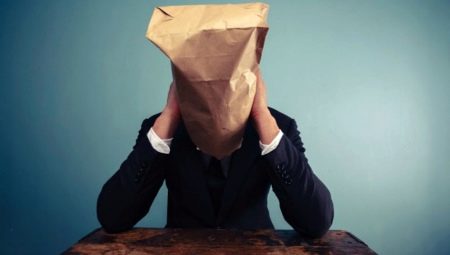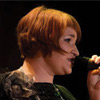Many people buy beautiful things, take care of stylish makeup, noticeable accessories in their image with the sole purpose of being attractive to others. At the same time, there are people who will never stand out from the gray mass, because they are panicky afraid that strangers will look at them. This fear is called scopophobia.
What it is?
Scopophobia (scoptophobia) - irrational panic fear of gaze of others. Do not confuse this mental disorder with gelotophobia - fear of possible ridicule, although scopthophobia is partially characterized by a fear of ridicule. But only partially.
Scopophobia is directly related to the group of social phobias (code 40.1 in ICD-10), since it is closely related to the interaction of a person with their own kind.
Scopophobia is considered a complex and severe mental disorder, because in addition to fear, scopophobia experiences several more strong negative emotions - guilt, shame.
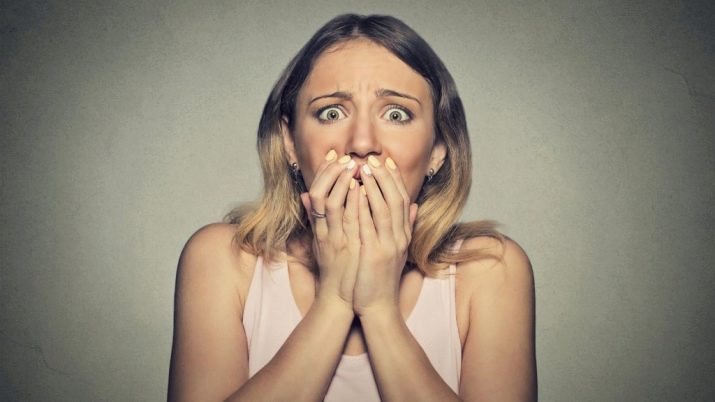
It is difficult to say when it was humanity who first learned about scopophobia, researchers suggest that this is an ancient fear that was characteristic of some representatives of the human race at the dawn of civilization. It is believed that the "first point" was the very first human shame. As soon as people learned to experience this social feeling, certain individuals appeared who were ashamed and shy more than others.
The term itself, designating the name of this disorder, was first formulated by psychiatrists at the beginning of the last century.For a long time, specialists could not accurately describe the distinguishing features of this disorder from others, but the average portrait of scopophobe gradually became known: this is a person who is extremely unsure of himself, he does not look into the eyes of others, he fears that someone might carefully examine him. He is afraid to be ridiculed, humiliated, and therefore other people's views make him want to run away and hide, to find a safe space in which no one can see him. For such basic manifestations, scoptophobia is often called social neurosis..
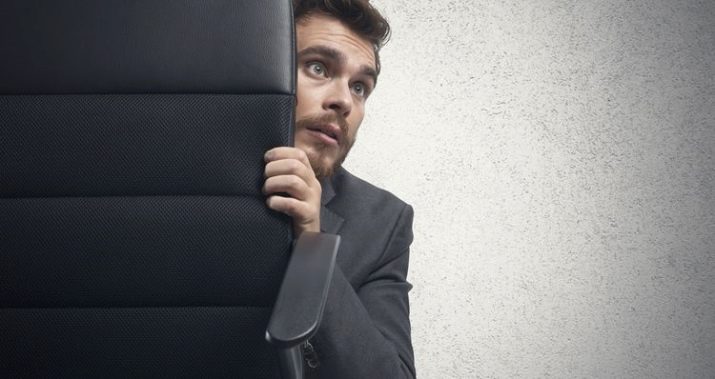
Why arises?
Experts are inclined to believe that the most likely prerequisites for the development of this phobia are laid in childhood. As soon as the child begins to socialize - goes to kindergarten or begins to study at school, he invariably encounters the fact that he is "greeted by clothes", each of us at different times in life is invariably visually evaluated by others. If the child has a sufficiently strong nervous system and normal self-esteem, he can easily cope with the involuntary embarrassment and awkwardness that may arise under the evaluating views of strangers.
But suspicious, insecure children, for whom the opinions of others are very important, can easily fall into the “trap” - one or two comments from the educator, teacher or peers, especially if they are public, is quite enough for the child to experience the present shock, worried.
If ridicule from peers is repeated periodically, then an inferiority complex develops, which is a very fertile ground for development and scaphophobia, and a number of numerous and diverse mental illnesses.

Sometimes scoptophobia starts after an unsuccessful public speech (the child forgot the words of speech, failed to present his project at an important conference or Olympiad). In this case, the fear of prying eyes develops faster, and very soon a person, even outside of situations when he needs to speak to someone, begins to feel anxiety due to a possible negative assessment by the public of their appearance, actions, behavior.
A significant contribution to the development of scophophobia, according to psychiatrists, is made by parents. If the family is dominated by a comparatively evaluative type of upbringing, when adults constantly compare their child, his actions, achievements, abilities with the neighbor Vasya or the son of a girlfriend, the likelihood of a mental disorder increases significantly.
Moms and dads, of course, want the best, believing that comparing their three-son with a good-neighbor neighbor should stimulate their native child to accomplishments and achieve academic success. But in practice, this does not work. And if it works, then with probable side effects in the form of mental disorders.
Too demanding parental attitudes toward the child are also likely causes of scoptophobia.
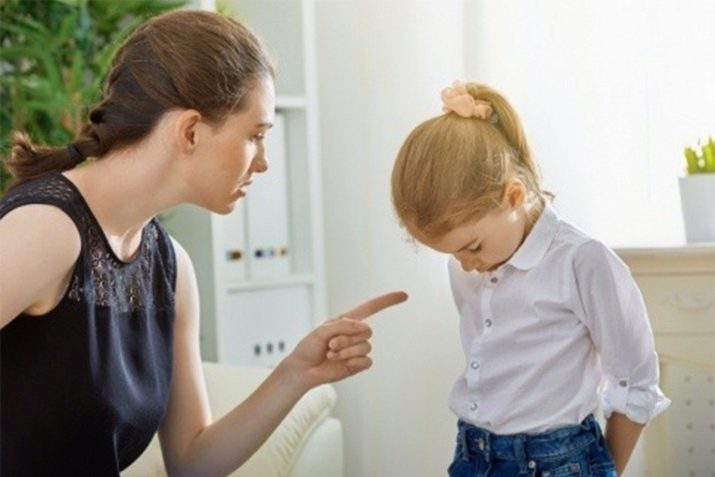
The tasks that adults can pose for a child often turn out to be overwhelming, and the requirement that a son or daughter be successful in everything they do can easily lead to serious consequences for mental health.
If, at the same time, adults criticize the inevitable failures of the child, then the probability of the disorder is even higher. The child closes, trying to close himself from his parents, and therefore from society as a whole, since he involuntarily projects maternal and paternal criticism with respect to his person on all the people around him.
But this does not mean that scorophobic children do not suffer from loving and overpowered by adults. Hyper-baked children who are used to being the main, beloved, central figures in the family grow up without the useful skill of confronting problems, they don’t know how to make responsible decisions, they expect actions from others. And such children are most often laughed at by a peer group (“sissy”, “good little daughter”).Under the yoke of ridicule, the child may break.
Adult scopophobes try to keep apart, they are very modest, even painfully modest. Everything is thought out to the smallest detail in their appearance, clothes, they are incredibly neat, look after themselves, and this colossal control and constant thoughts about how they look, exhaust them. They avoid crowds, large groups, new acquaintances. It can be difficult for them to build a personal life, create a family, communicate with colleagues.
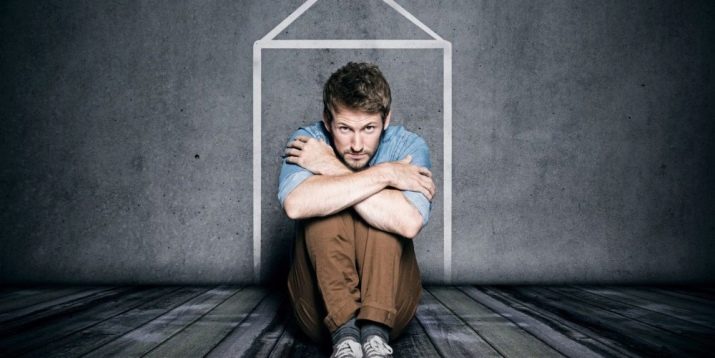
The occurrence of scopophobia at any age can be a consequence of the presence of epilepsy, Tourette’s syndrome.
Coptophobic epileptics experience attacks of the underlying disease in public places, for example, in a shopping center. And the suffering Tourette's syndromeWorried that they are being examined, they begin to suffer from a sharp exacerbation of facial ticks, stuttering exactly when others are looking at them.
Symptoms and signs
Finding himself in a “dangerous” situation, the scoptophobe blushes or turns pale, his heart often beats, his blood pressure rises, his hands begin to tremble, his voice breaks. A person may experience nausea, may lose consciousness. To exclude such situations, people with this phobia try their best to avoid circumstances and situations in which their uncontrollable fear may manifest, with which they can not do anything at a conscious level.
Skopofob will never agree to speak to an audience, even if he is a successful scientist, innovator, and brilliant writer.
He will choose a job not one for which he has talents and sympathies, but one in which he will not need to contact strangers. Scopophobia is characterized by a constant anxiety state, hypertrophied guilt. They check what they have done many times to rule out mistakes; they are almost always sure that they are doing worse than others, that they don’t have such abilities as the others.
Critically, the scopthophobes understand that their fear has no reason and are even more ashamed of it and blame themselves for not being able to cope with phobic manifestations. This only exacerbates their already unenviable position.
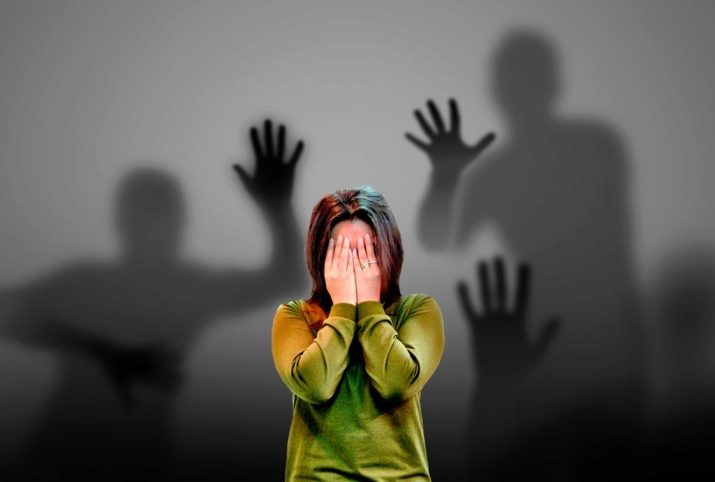
Often Skoptofoby think up for others, dramatize. Visiting a doctor or visiting the post office, they think for a long time whether they said everything correctly, whether they did everything that way, looked good, what these completely strangers could think about them - the doctor and the postman. Scopophobes lose their sleep and lose their appetite if someone, even a casual passerby, looks disapprovingly or appraisingly in their direction or releases an incorrect remark.
It can be very difficult for people with such a phobic disorder to concentrate, to concentrate on something, their thoughts are almost constantly busy analyzing their own “flights”, experiences. If the actions require them to be performed in front of someone, then the person may not fulfill their task at all from excitement (for example, the librarian scopophobe feels great alone, taking an inventory of the book fund, but loses control of himself as soon as the visitor asks to accept books or give them out).
Therapy
Do not underestimate scopophobia. She herself does not pass; getting rid of her by folk remedies is also impossible on her own. The treatment should be carried out by a psychotherapist or psychiatrist.
A visit to a psychologist will not work. Mental disorder needs a medical evaluation. Psychotherapy is considered an effective method - mainly rational and cognitive-behavioral.

But at the same time, more often than in the case of other phobias, medication is recommended. To relieve neurotic manifestations, anxiety can be recommended by antidepressants, in severe cases - tranquilizers.
Often, treatment begins with the medication part and only then systematically proceed to psychotherapy. The doctor’s task is to teach the patient to look at the traumatic situations from a different perspective, from a new position, as a result, the patient changes his attitude to the previous attitudes, the value of public opinion decreases, and at the same time, the fear of not being like that, is decreasing.
No less positive results are provided by gestalt therapyin which the doctor determines the causes and works with a sense of shame and guilt.
On the road to recovery, the support of loved ones is important. At first, it is desirable that relatives accompany a scopophobe in transport, a store, on the street.
It is also recommended to master yoga and relaxation methods.. The course of treatment may take several months.

The following video will talk about phobias and fears that almost every person has.
